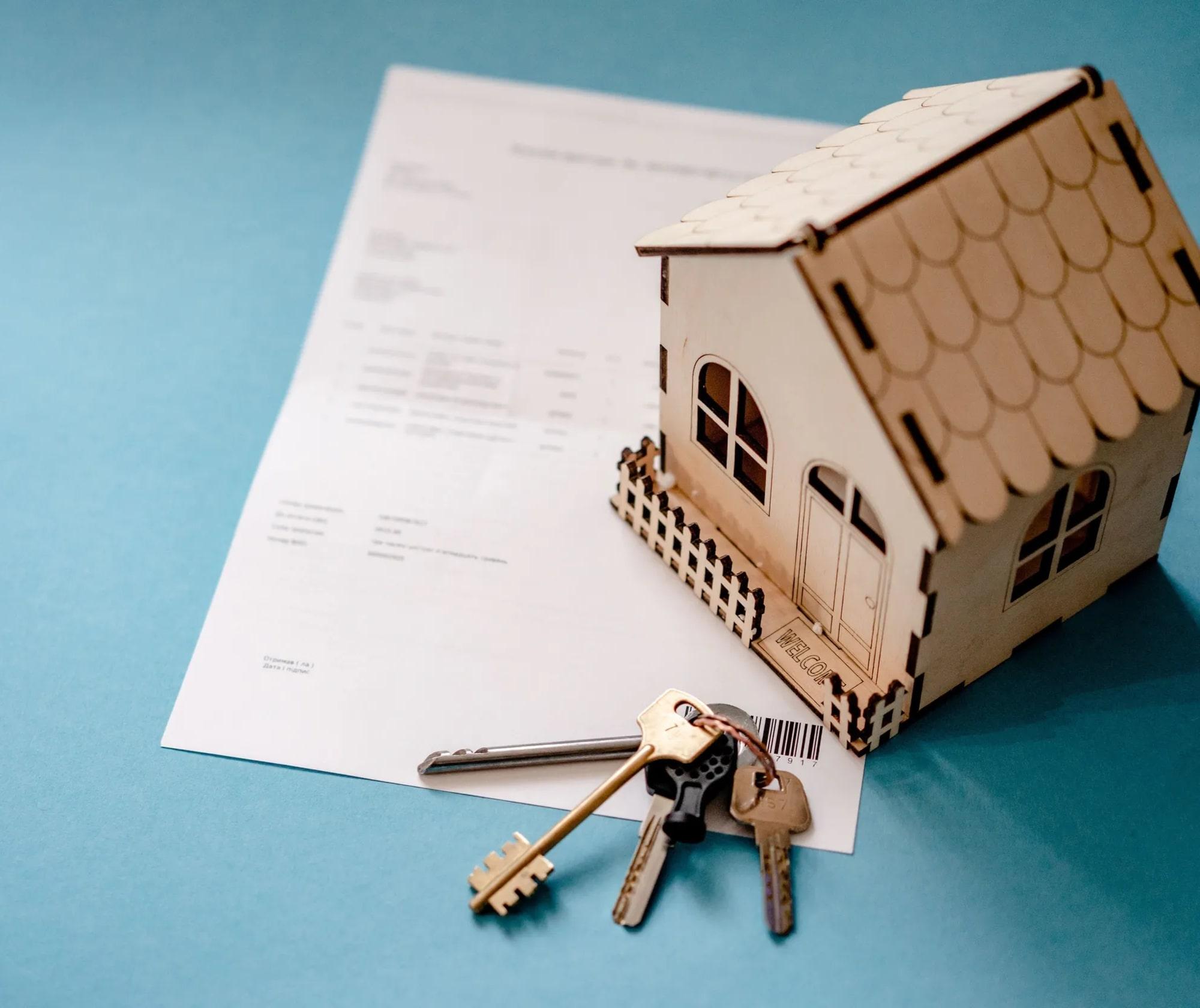Shows like "Selling Sunset" and "Million Dollar Listing" make estate agency look like the most glamorous job in the world. Agents walk around in high heels and sharp suits, drive super cars, and make multimillion-pound deals.
The most expensive listing on "Selling Sunset" was $75 million.
But what’s it like to be an estate agent in real life and in the UK?
In this article we dive into the details of work in the property market, looking at everything from how to become an estate agent to what it takes to make a success of it once you’re there.
How to become an estate agent in the UK
The estate industry is growing in the UK. In fact, the number of estate agents has increased by more than 10% in the past two years, with the largest uplift in The North East.

What’s more, Coldwell Banker Richard Ellis (CBRE) expects the inflation rate reductions that took place at the end of 2023 and the reductions that will likely take place in the latter half of this year to stimulate estate sales going forward.
There have never been more opportunities to make a break into the property market.
Every day is different in an estate agency, but you can expect your week to include the following tasks:
- Responding to customers who are interested in buying or renting your company’s properties
- Showing customers around residential or commercial properties they are interested in
- Contacting solicitors and landlords for valuations and updates on how sales and rental contracts are progressing
- Communicating these updates to customers to manage their expectations
- Contacting customers about newly listed properties that you think they might like
- Negotiating sale/rental prices between customers and sellers/landlords
- Understanding the details of conveyancing (transferring property from seller to buyer)
- Creating window adverts
- Listing available properties for sale online
- Collecting keys
- Preparing floor plans for brochures/online
- Taking photographs of properties
- Sharing your knowledge of the local area on social media
The working week for estate agents generally consists of 35 to 40 hours. But the job can also involve working outside of the standard office hours of nine to five, as clients will often want to carry out viewings before and after work.
Many estate agents also work on Saturdays, when clients generally have more free time.
Editor’s note: Image is everything in the estate business. Create a professional logo for yourself with GoDaddy’s free logo maker.
Ways to start a career as an estate agent
To start a career as an estate agent you might want to follow these simple steps:
- Look into apprenticeships, even if you’re not a school or college leaver (more on this below)
- If you feel like you already have the correct sales experience, search job websites for roles, from trainee estate agents to more senior roles
- Apply
- Brush up on the Estate Agents Act 1979
There are various different paths you can take to become an estate agent in the UK.
You don’t need a university degree to get into the profession.
That said, some people choose to do a degree in a subject like business before they jump into an estate agency or estate management career.
Here are a few options for getting into estate agency:
Enrol on an apprenticeship
Many established estate agents offer apprenticeships.
In an apprenticeship, the estate agency offers a contract of employment to the apprentice and an apprenticeship trainer provides training and support to the apprentice.
Apprentices are entitled to 20% off-the-job training, as well as the training and experience they’ll get working day to day in the estate agency.
There are a few apprenticeships that you can consider in England. These include:
- Junior Estate Agent Level 2 Intermediate Apprenticeship
- Housing and Property Management Assistant Level 2 Intermediate Apprenticeship
- Housing and Property Management Level 3 Advanced Apprenticeship
For more information on these options visit the National Careers Service Website.
Apprenticeships may differ slightly in Scotland, Wales and Northern Ireland. For information on opportunities in these countries visit the following resources:

You might be inclined to discount this option if you’re not a school or college leaver, but don’t.
You can take an apprenticeship at any age.
You just have to find the right provider and employer for your needs.
Start as a trainee
Applying for a job as a trainee estate agent is another great way into the residential property field.
Rates of pay vary across the UK but in London, you can be looking at a starting salary of £28,600 a year with on-target earnings of £50K.
Trainee estate agent job roles are regularly posted on job sites like Indeed, Reed and LinkedIn, so take a look a job boards to see what’s available near you.
Be your own boss
Setting up as an independent estate agent is another route you can go down to get into the industry. Companies like The Property Experts offer self-employment estate agent opportunities.
Editor’s note: Whether you work with an established agency or strike out on your own, you will want your own website in order to establish a reputation in the estate agency industry. Use one of these estate agent website templates to quickly get your website up on the web.
Key skills for estate agents
Whichever of the above paths you choose to go down, there are some key skills you simply must have in order to succeed as an estate agent.
These include:
- Good communication skills
- The ability to work independently, as you’ll usually be in charge of managing your own schedule
- Sales skills – this may sound obvious, but selling isn’t as easy as it might seem on reality TV shows. Some sales techniques, like the ‘hard sell’ in which you put pressure on people to buy, can be stressful and awkward.
- Positivity – sometimes you’ll need to be able to find the best in properties that don’t seem to have that much potential at first glance
- Good time management – there’s nothing more irritating for clients than an estate agent who turns up to appointments late
You’ll also usually need to be able to drive, as you’ll have to visit the houses you are selling and they will be dotted around a city or even a county.
The pros of being an estate agent
Estate agency can be a hugely fulfilling career. Connecting buyers with their dream or forever homes can be a deeply rewarding experience. You may get to know your customers over the years and see them flourish as they move from home to home, perhaps finding their first house as newlyweds or their first family home.
Data from job search site Indeed suggests that the average salary of an estate agent in the UK is £34,610 a year.

Estate agents are also given a lot of freedom and flexibility to control their own schedules.
Plus, the job isn’t a deskbound one — barely a day will go by when you’re not:
- Out and about
- Chatting to people
- Getting some steps in and seeing daylight
This is part of the appeal for many people.
The cons of being an estate agent
As with all professions, there are a few downsides to being an estate agent.
Hours can be slightly antisocial, with weekend and evening working usually required.
This career choice can be stressful when the economy slows down and sales become sluggish.
Plus, it can be tough to watch a house sale fall through if you know your client has their heart set on that particular property.
Yet, ask most estate agents, and they’ll say the pros of the profession outweigh the cons.
Frequently asked questions about becoming an estate agent in the UK
Here we answer some quick-fire questions concerning what it takes to make it in the estate agency industry.
What qualifications do you need to be an estate agent?
You don’t necessarily need a degree to become an estate agent in the UK. Some employers look for a certain amount of GCSEs, A-levels or equivalents.
But previous selling experience and good people skills can go a long way in securing your first role, too.
Do estate agents earn good money?
Real estate agents and property managers with 30 years of experience report earning between £2,066 to £4,450 per month
New workers with one year of experience can expect to earn between £10 and £21 per hour.
However, this can vary wildly depending on the:
- Area you’re selling houses in
- Type of houses you’re selling
- Typical customer your company sells to
Estate agents can earn around 10% commission for every sale they make, so if they sell a million-dollar listing, they could pocket £100,000.
Many estate agencies also offer their employees uncapped earnings over their basic rate salary. So the harder and smarter you work, the more you’ll reap the benefits.
Is it hard to work as an estate agent?
Indeed’s Work Happiness Score of 2022 reported UK estate agents as the least satisfied with their jobs.
Common complaints with this profession include:
- Being the target for complaints
- Long hours of hard work and study
- Missing social events and family time
- Losing listings or sales
- Few repeat clients
- No safety net
- Soft markets are not easy to endure
As mentioned above, though, the pros of being an estate agent can massively outweigh the cons thanks to:
- Uncapped earning potential
- The freedom to manage your own schedule
- The feel-good factor of hooking a client up with their perfect home
How to become a rich estate agent?
Research suggests that 85% of homes in the UK priced at £1 million and higher are located in London.
You may have more chance of becoming a rich UK estate agent if you’re based in the capital.
However, there are some key skills to becoming a luxury estate agent. Without these, you’ll find it harder to break into the big time.
In a LinkedIn post, luxury estate agent Hayden Foote wrote:
“So, what's the recipe for success? The luxury market demands a deeper understanding of the high-end lifestyle, market trends, and the art of negotiation.
“Networking is your superpower. Cultivating relationships with high-net-worth individuals, property developers, and industry influencers can open doors that lead to palatial properties and exclusive listings. Remember, in this world, who you know matters as much as what you know.”
In an article in The Telegraph, meanwhile, another anonymous elite estate agent wrote:
“There’s an intimacy to finding a home for someone. You need to understand how they live, what’s important to them. Is it an east-facing kitchen to capture the morning sun? Perfect Palladian proportions?”
What does an estate agent do?
Put simply, estate agents help people buy and sell houses. Some will also work with rental properties or solely as lettings negotiators.
The job involves all the tasks listed above, from measuring the rooms of houses and creating flat plans for brochures to negotiating sales prices between buyers and sellers.
Can you establish a real estate agency business and make decent money?
Setting up your own estate agency business is similar in many ways to launching any new business in the UK.
You’ll need to:
- Go through the registry process with official bodies like Customs House and HMRC
- Purchase the relevant indemnity insurances
- Work on your branding
- Set up a website – and probably an app as many estate agents now have them
You’ll also need to familiarise yourself with the Estate Agents Act 1979, an act that was set up to ensure estate agents work in the best interests of their clients. The act contains guidance on offering fair deals, handling properties well, providing clients with genuine information and handling money with care.
You don’t need to be a member of an official body to launch an estate agency business. How much money you make, meanwhile, will be up to your hard work and skills.
Related: How to start your own business in the UK
What are the steps to becoming a licensed estate agent?
You don’t actually need a specific license to operate as an estate agent in the UK.
However, all estate agents are regulated by The National Trading Standards Estate Agency Team. This professional body is responsible for assessing if an individual or a business in any part of the UK is abiding by the standards laid down in the Estate Agents Act 1979.
What is the best path to take to become a successful estate agent?
The best path to becoming an estate agent will depend entirely on you — your age, your current employment status, and your financial situation.
Whether you choose to go down the apprenticeship or trainee route or even set up your own business, it can be done with relatively few hurdles and without years of additional training.
With all this covered there’s just one thing left to say — good luck!
The information contained in this blog post is provided for informational purposes only and should not be construed as an endorsement or advice from GoDaddy on any subject matter.









